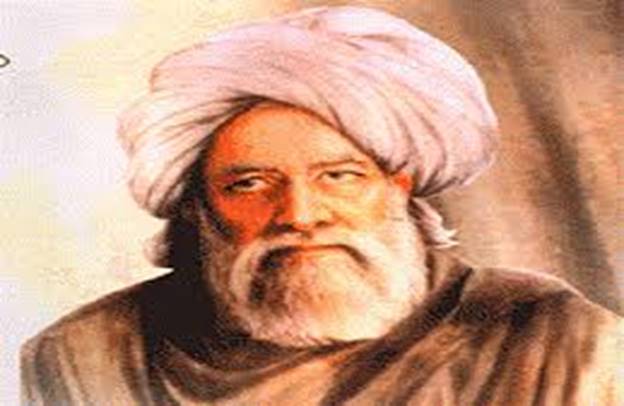
Long before the traffic lights were invented, thousands of miles away from Oakton, Bulleh Shah - a Sufi Saint buried in Kasur, Pakistan, through his poetry communicated a simple and similar message as well that was applicable then as it is now to human beings of all spiritual persuasions. Addressing himself - and the reader - in first person Bulleh Shah said, “You have gone inside the mosque and the mandar (Hindu or Sikh Temple) but you have not gone inside yourself, i.e., done some introspection.” Bulleh Shah in a later verse says: “You have read all the books but one thing you haven’t read is yourself, i.e., again done some introspection.”
Is Happiness an Inside Job?
By C. Naseer Ahmad
Washington, DC

What does happiness mean and can we even think about happiness in the present-day world? Some might be offended to think about happiness in such a trying time but don’t we all long for spring in the cold dark nights of winter?
Happiness, according to the “Definitions” website, is synonymous with “ felicity ” and is the “ state of well-being characterized by emotions ranging from contentment to intense joy.”
To understand whether happiness is an inside job, one must understand what is an inside job. In common parlance, an “inside job” connotes some transgression committed with the assistance of someone trusted by the victim.
Anxiety is an antonym of contentment, serenity and calmness - the states that can be easily associated with happiness. In times past, the faithful would run to the houses of worship. Unfortunately, the anxiety caused by the ferocious enemy of a pandemic like coronavirus - whom the naked eye cannot see - has virtually blocked the pathway to the usual escape routes. Plus, running to the houses of worship might be a very risky - perhaps even fatal - venture.
Recently, the Oakton United Methodist Church - founded in 1898 and located at the corner of Route 123 and Hunter Mill Road in Oakton, Virginia - had a thought-provoking sign on its billboard: “Happiness is an inside job.” The location of this quaint church is between two traffic lights in Oakton, which is a small town, so the lights are not always synchronized.
Road signs are everywhere and in this modern world, it is easy to miss them. However, the location of this church makes it possible for drivers to be forced to stop until the light at the intersection of Hunter Mill Road turns green. The few moments of idleness, while the traffic light is red, are enough to get some food for thought at this historic junction where some one hundred and fifty years ago, both the Union as well as Confederate troops were foraging for food and supplies during the Civil War of the 1860s.
Signs are created to draw attention with the hope of bringing people “inside”, be they houses of worship or commercial enterprises. People can derive the meaning from a sign, according to their own inclinations and perceptions.
Even though the target audience of a sign at a church might just be its Christian congregation, it is still possible to have an interfaith impact because in the end as human beings the “inside,” i.e., the physiology is common. The coronavirus has once again proved that once this deadly organism gets “inside” our body it will create devastation in our organs whether as human beings the color of our skin is fair or not or for that matter whether the hair on our head is straight or curly or none at all.
Long before the traffic lights were invented, thousands of miles away from Oakton, Bulleh Shah - a Sufi Saint buried in Kasur, Pakistan, through his poetry communicated a simple and similar message as well that was applicable then as it is now to human beings of all spiritual persuasions. Addressing himself - and the reader - in first person Bulleh Shah said, “You have gone inside the mosque and the mandar (Hindu or Sikh Temple) but you have not gone inside yourself, i.e., done some introspection.” Bulleh Shah in a later verse says: “You have read all the books but one thing you haven’t read is yourself, i.e., again done some introspection.”
As human beings, it is within us that we can find the source of happiness, contentment, serenity, and calmness. In perilous times, such as when the coronavirus forced people across the world to remain within the confines of their homes, won’t it be nice to find happiness “inside” of us, especially since mingling with a lot of folks in person can be what they used to say during the Cold War - a mutually assured destruction?

